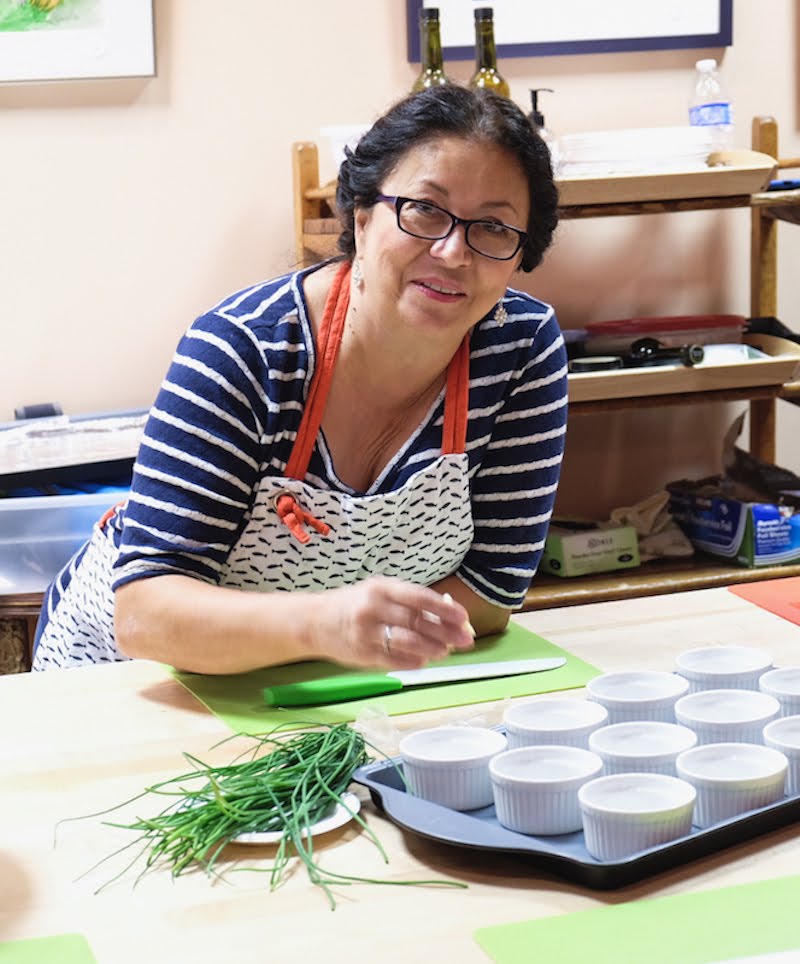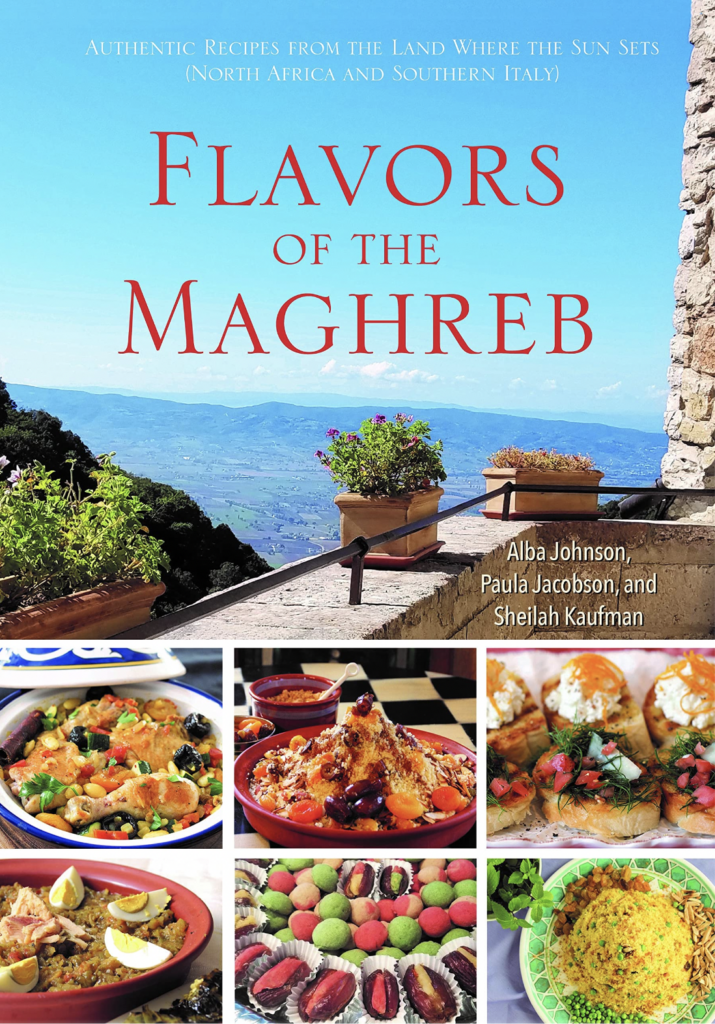More Than Just Recipes


By Duffy Perkins
When you cook with Chef Alba you come away with more than just a recipe for a tasty dish, you get a lesson in culture and connection.
Alba Carbonaro Johnson has been leading cooking courses around Chesapeake Country for years, teaching via Zoom during the pandemic but also as a guest chef at Whole Foods in Annapolis. She has one cookbook under her belt, Cucina Semplice: Traditional Southern Italian and North African Dishes, and is about to release a second one, highlighting the flavors of the Maghreb, an area of northwest Africa where Johnson grew up. Flavors of the Maghreb expands readers’ palates to Sicilian, French, Spanish, Arabic, and Berber cuisine.
Johnson was born in Naples, Italy, but moved to Tunisia, North Africa, with her family at a young age. Growing up, her grandfather would escort her to the open-air markets to shop for the family, teaching her how to recognize fresh ingredients and bring them home to mix with pantry staples. All of the cooking was done outside on a grill or one-burner stove, and everything was made from scratch.
Johnson’s grandfather taught her about layering flavor, attention to detail, and most importantly, how to cook from the heart.
“I really enjoyed those experiences so much,” she says. “How do you know if fish is fresh? Look into its eyes. What about a carrot? Pick it up and bend it. He taught me that delicious food came from simple, fresh ingredients cooked properly.”
Johnson’s instructions are full of the historical significance of each dish, and its translation throughout time. Her recipes are not simply tasty, but transformative.
“When I teach, my biggest lesson is that I want to bring my students into my culture so that they feel a part of it,” she says. “I want you to experience the food and understand the ‘why’s’ and ‘how’s.’ There are so many recipes online that you can get for free, but the important thing is that you feel a connection.”
Johnson also knows how to cook with versatility. She learned the techniques of cucina povera, which translates to “poor cooking,” although it has nothing to do with financial wealth. “If you grow up in Italy, you learn to use everything,” she says. “And when we came to the United States, my mother continued to cook that way. Nothing goes to waste.”
When Johnson leads cooking demonstrations, a knife is her only tool. Pesto is made in a mortar and pestle, and pasta is cut by hand. “You don’t have to buy all this equipment just to prepare food,” she says.
Johnson’s cookbook focuses on a flavor profile that is both exotic and mundane, as Maghrebi cuisine pulls in elements from the Mediterranean, Italy, and North Africa. Lentils will be mixed into a dish with pasta and rice, while pears may feature prominently in a traditional risotto. The herbs and spices transcend the dish, whether it’s Moroccan saffron or Genovese basil. With gentle ease and skilled attention, Johnson’s recipes have the ability to transport and transcend.
Flavors of the Maghreb is available for preorder on Amazon. Learn more: easycookingwithalba.blogspot.com/
